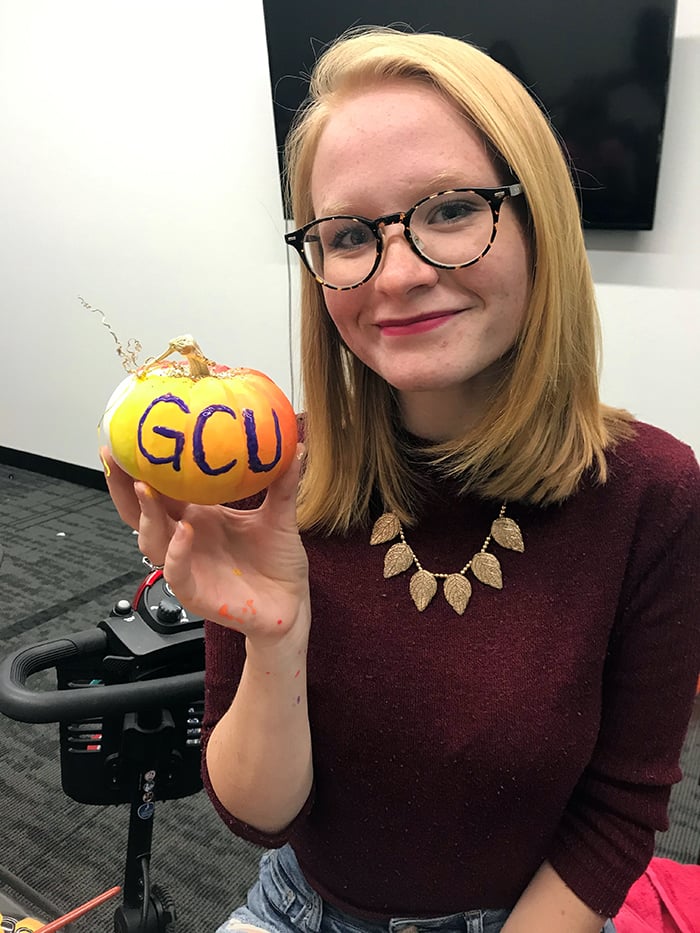
By Connie Colbert
Director, Canyon Health and Wellness Clinic
Is it a cold sore or a canker sore?
- Cold sores are a cluster of blisters that first appear clear, then become cloudy. The first infection may be inside the mouth, but cold sores generally appear outside the mouth on the lips.
- Canker sores are gray or white sores surrounded by a red, inflamed area. They occur only inside the mouth, on the tongue or the insides of the cheeks, lips or throat.
- Cold sores are also extremely contagious, while canker sores are not at all contagious.
- Canker sores tend to last a little longer, but both types of sores are harmless unless you have an underlying immune-system problem.
What are cold sores?
Despite their name, cold sores (also known as fever blisters) are not caused by the common cold. Cold sores typically result from a viral infection called herpes simplex virus (HSV).
Cold sore blisters can occur on many different parts of the body but are most common on or around the lips, cheeks or nose and, on rare occasions, in the eye.
Symptoms of the initial infection are like those of other viral infections and may include fever, swollen glands, fatigue and multiple sores in the mouth and on the gums.
Recurrences are less severe, and the individual may notice a burning or tingling sensation 24-48 hours before a cluster of blisters appear. These small, fluid-filled blisters then become cloudy and pus-filled.
After the blisters have broken to reveal a bright red area, they dry up, crust and heal within 7-10 days. Painful sores in or around the mouth may make eating difficult.
Symptoms subside after the initial illness runs its course, but the virus remains in the nerve cells until reactivated. Once reactivated, HSV travels down the nerve cells into the skin, causing its characteristic fever blisters, typically in the same location.
Most people with recurrent cold sores cannot recall having had the first infection; they may have been too young to remember, or the infection may have been very mild.
Some infected individuals never develop cold sores because the HSV is never reactivated; however, others may experience recurring sores several times a year.
Causes: Herpes simplex virus (HSV) typically causes cold sores. HSV is very common. It has been estimated that nearly 50% of children entering kindergarten and 90% of adults have been infected with HSV although a much smaller percentage has experienced symptoms.
Two types of HSV traditionally have been differentiated by location.
HSV-1 generally occurs above the waist (e.g., a cold sore on the lip).
HSV-2 generally occurs below the waist (e.g., sexually transmitted sores on the genital area). However, it is possible to have an HSV-1 infection below the waist and vice versa. For example, HSV-1 infection can be transmitted from mouth to genitals during oral sexual contact. Both strains have similar signs, symptoms and course of disease, and both are contagious, so contact should be avoided.
Several factors can trigger the HSV virus, including sunlight, sunburn, stress, fatigue, other infections, fever, menstruation and intestinal upset. In many cases, the precipitating factor is unknown.
Identifying triggers may allow a person to prevent recurrences by effectively removing these factors. For instance, if exposure to sunlight usually precedes cold sores by 24-48 hours, one can be confident that sunlight is a "trigger" and one should minimize exposure.
Treatment: There is no cure for cold sores. However, some medications may relieve pain and soften HSV crusts on the skin. These remedies include:
- Acyclovir (Zovirax) or valacyclovir (Valtrex), taken orally, may decrease symptoms if started within 24-48 hours after the onset of symptoms. With topical ointments, there is no demonstrated proof of effectiveness with recurrences. (This medication is prescribed by a healthcare provider.)
- Zinc oxide ointment used after crusts have formed.
- A drying agent (e.g., 70% rubbing alcohol or Blistex ointment), particularly when sores first appear.
Note: It is not recommended to use steroid ointments, dye-light therapy or vitamin therapy (unless a deficiency exists). These techniques are ineffective and may make the sores worse.
Transmission and prevention: HSV is contagious and may be transmitted by any contact with the blisters until the sore is healed. Furthermore, most people with HSV shed the virus and may be infectious even when sores are not present. Asymptomatic shedding from the site where sores appeared may occur randomly up to 3-6 days or more each year.
Spreading the cold sore to another site on your own body is not common; however, washing hands after touching any sore is reasonable precaution, and you should be especially wary of spreading the virus to the eyes.
When to seek medical care: Consult a clinician if:
- Cold sores become infected with bacteria (draining pus)
- Cold sores do not go away after a couple of weeks
- You develop a temperature over 100 degrees Fahrenheit
- You experience eye irritation
What are canker sores?
Canker sores (aphthous ulcers) are painful sores inside the mouth. Canker sores are twice as common in women and usually first appear between the ages of 10 and 20 although they may appear as early as age 2.
Symptoms: Although canker sores can appear anywhere on the mucous membranes of the mouth, they most frequently appear on the inner surfaces of the cheeks and lips, tongue and soft palate.
They are usually oval or round with a grayish-white eroded surface surrounded by a red, inflamed area. They often, but not always, appear in clusters and can be anywhere from 1/8 of an inch to 1 1/4 inches in diameter. Unlike cold sores, they aren’t contagious.
The sore may be painful for three or four days, but complete healing usually takes 10 to 15 days. Canker sores may recur many times each year.
Causes: No one knows what causes canker sores. They may be caused by a virus, may be a form of allergic reaction or may result from an auto-immune condition such as Celiac disease (meaning that the body has developed an immune reaction against its own tissue). Some people have also found that eating citrus fruit and other acidic foods increases the occurrence of canker sores, but this has not been scientifically proved.
Factors that may trigger these sores (without causing them) are injury or irritation (e.g., from dentures or sharp teeth), smoking, stress, a diet lacking in vitamin B12, folic acid or iron, and the onset of menstruation for some women.
Treatment: Nothing cures canker sores or prevents recurrence. There are, however, ways to ease discomfort and prevent infection during the 3-4 days when the sores are painful.
To prevent discomfort, try to avoid irritation of abrasive or spicy foods and use care to not irritate the sore while brushing your teeth.
You may use Acetaminophen (Tylenol) or use an anesthetic oral gel such as benzocaine, but stay away from nonsteroidal anti-inflammatory drugs (NSAIDs) such as ibuprofen since they may cause canker sores in some people.
Avoid toothpaste and mouthwash with an ingredient called sodium lauryl sulfate, which may contribute to canker sores.
Cleansing antiseptic medications may prevent infection and promote healing. These medications can be used as rinses or gargles 3-4 times a day or as directed on the label. Many antiseptic and pain-relief medications may be purchased without a prescription. A few examples are:
- Hydrogen peroxide diluted with water to half-strength
- One tablespoon of salt and baking soda in four ounces of water
- Gly-oxide (a nonprescription product)
- Wet tea bags held over the area
Vitamins may help in cases where a specific deficiency exists. In a study at the National Institute of Dental Research, half of the people with iron, folic acid or Vitamin B12 deficiencies responded favorably to supplementation while the other half showed no response.
If you experience canker sores very frequently, it may be helpful to get tested for allergies. Avoiding certain foods may minimize canker sores caused by food allergies.
When to seek medical care:
- Your canker sores are so severe that eating is difficult
- You experience canker sores very frequently





























